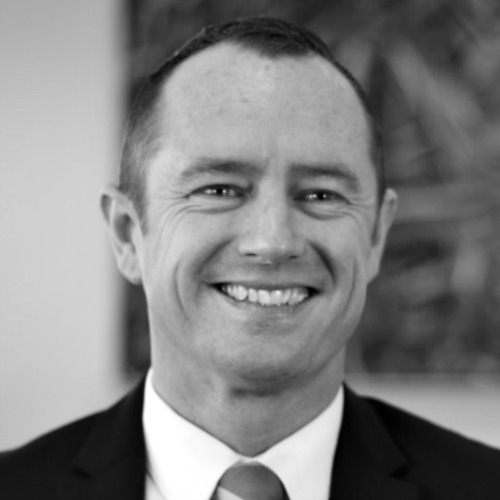
In my office this morning a colleague knocked on the door. Clearly flustered, she entered and asked, “Do you want to know the one thing I hate about this industry?”
“I was just in the lift with a guy who asked me what I do, and when I told him I was a financial planner, he said, ‘So how’d you get that job, half-hour diploma online?’”
I sympathised. My colleague is a smart, conscientious financial planner and qualified accountant, so she was naturally offended by the condescending comment. Clearly, there’s still a perception from a large percentage of the wider public that the industry is rife with dodgy planners and pseudo-professionals. Our clients know better, but broad sections of the wider public do not.
We need to acknowledge this.
As cited by the FPA, only one in five Australians use a financial planner and over 50 per cent of people don’t know if financial planning is regulated or not. Clearly, the trust issue runs deeps and needs to be properly addressed.
The genesis of this impression is often tracked back to 2008 and the collapse of Storm Financial. The advisory malfeasance in the case was astronomical, but the scandal was not unique.
By 2014, the few ‘bad apples’ defence was obliterated when a host of CBA, Macquarie and NAB advisers were suspended, terminated or resigned due to a raft of compliance and advice issues.
Whether these calamities arose because of poor education or wilful mens rea is a debate for another time, but the answer surely involves a measure of both.
The damage done to the industry by these scandals was significant because they very publicly made a mockery of the government’s 2013 Future of Financial Advice reforms.
The FOFA reforms had granted ASIC stronger supervisory powers, but the proliferation of headlines in the press and the magnitude of the players involved seriously undermined the public’s faith in the industry. These weren’t rogue cowboys operating on the fringe and preying on the isolated, these were names we all know and trust. And, in classic mimicry of Kahneman’s Loss Aversion Theory, people remember far more sharply these stains on the industry than anything else. No wonder there is an undercurrent of mistrust.
So where does the industry fall short?
Much has been made of the weakness of the RG146 exam, and while most planning firms have far higher standards of training, the fact remains that there is still vast scope for underqualified and poorly skilled individuals to be placed in positions of trust under current legislation. If the only thing technically separating someone from flipping burgers to managing a $10 million portfolio is an RG146 certificate, the system is not catering to the needs of the industry or the wider public.
The guy in the lift was a jerk, but he had a point. Fortunately, an absolute game-changer is in the works, and the timing couldn’t be better.
In December 2015, the federal government proposed reforms to raise the professional standards of advisers that include mandatory university degrees, ongoing continuing professional development and the undertaking of a ‘professional year’, followed by an exam.
In addition, an ‘independent body’ will also monitor these standards and set a comprehensive code of ethics for advisers. ‘Transition Pathways’ will be determined for existing advisers that will foreseeably take into account industry experience, but the new parameters will generally apply to all on 1 July 2017.
Make no mistake: the proposed changes are an important, long overdue step towards raising the codes of advice and strengthening the reputation of the financial planning industry. Not much will change for the vast majority of good advisers, but a lot will change for the bad ones.
The effect of these standards could take some time to filter down into the collective consciousness of the general public. Outside of the industry, coverage of the proposed changes has been minimal in the press. Leading up to 1 July, it’s also easy to imagine most of the headlines being taken up by the government’s impending changes to superannuation.
However, this presents a rare opportunity.
1 July 2017 presents a remarkable confluence of events. It will be an ideal time to show our value, helping clients navigate the proposed changes to superannuation. As well as tallying contributions and winding up TTR’s, there will be myriad value-adds around spouse contributions and the establishment of family trusts to consider. Age pension minimums will also rise, which should feature heavily in the press and trigger a significant amount of focus on financial planning.
In addition, the lead up to EOFY 2016 will be an optimal time to espouse change in adviser standards and embrace new industry benchmarks. We should be shouting these changes from the rooftops, because in 2017 financial planning will an ubiquitous presence in the press and in BBQ conversations around the country, for vastly different reasons than it was in 2014.
The industry will take a giant evolutionary leap, and we should ensure that in 2017, everyone is watching!
In the meanwhile, what to do with doubters like the guy in the lift?
Well, my colleague was right to feel indignant. She’s good at her job and fiercely protective of the industry. However, advisers shouldn’t feel burdened by the misconceptions out there about financial planning. We shouldn’t get frustrated or defensive. We know the value of what we do and so do the most important judges – our clients.
We should acknowledge the doubt in full, and use the next year to take a big fat chunk out of it. Any scrutiny of our industry is welcome, and any efforts to hold planners accountable are necessary and just.
After all, it just gives the good ones a chance to shine.
Tahn Sharpe, client services, private wealth, Stanford Brown
Never miss the stories that impact the industry.